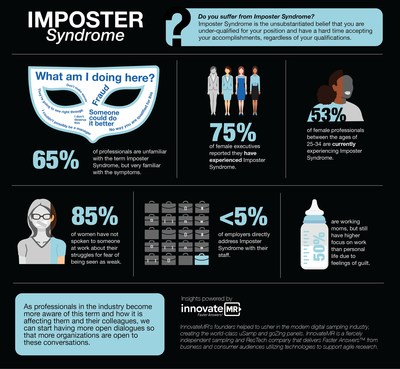Have you ever had that moment at work where you questioned everything that led you to reach the position you are in? Have you been baffled about why you were promoted or felt like you didn’t deserve to be in your organization? Felt like an imposter at work?
If you identify with any of these questions, you are not alone. Imposter Syndrome is a much more common phenomenon than you think, especially among women. The fear of failure and sense of incompetence make dealing with imposter syndrome even harder.
In this blog, we will look into the various types of imposter syndrome at work and the symptoms to identify it. We will also look into some actionable tips that you can rely on to deal with feeling like an imposter at work.

What exactly is Imposter Syndrome?
Imagine your first day at a new job. You look around and there are no familiar faces, everyone seems to be busy and tackling their tasks head-on. And then there is you still trying to figure out the way to the washroom let alone comprehend the terms thrown around in the work meetings. Before you know it you are anxiously wondering if you are a fluke, and the HR made a mistake hiring you. It doesn’t matter that you sat through several rounds of interviews and were chosen from among various candidates. The damage has already been done.
Imposter Syndrome is a persistent feeling of self-doubt that you feel about your qualifications despite having evident success and accomplishments to support it. Even if it is a tiny thought at the back of your head, this can cause significant damage to your professional life.
For us Indian women, the root cause of this imposter syndrome can be our upbringing and societal norms. We just want to prove that we are good enough in otherwise male-dominated fields.
Imposter Syndrome vs Incompetence
Imposter Syndrome is different from incompetence. While incompetence is judged based on your actions and outcome, imposter syndrome is a fear that you cultivate in your thoughts. It doesn’t always mean that you are no good. Sometimes you are good enough, but you just don’t let yourself believe it.
What are the 5 types of imposter Syndrome?
Not everyone responds to imposter syndrome the same way. It is said that they tend to exhibit the four P’s of imposter syndrome — perfectionism, paralysis, procrastination, and people-pleasing there are also 5 common types of imposter syndrome.

The Perfectionist: Failure is not a part of their lexicon, nor do they want to taste it. They set very high standards for themselves and are super fixated on every tiny detail. Too much so that even a tiny mistake can send them doubting themselves.
The Superhuman: The everywhere, everywhere all at once gang. They believe that there is nothing impossible. But often their quest to excel in all areas without even taking breaks (cause that’s another guilt trip) ends up in a severe case of burnout and disappointment.
The Natural Genius: These kinds of people are the one who believes that talent and intelligence are natural traits. If they suddenly face something out of their syllabus, the first thought is not to master it but that they don’t belong there.
The Soloist: As the name suggests, they like to fly solo. Mostly due to their hesitancy to ask for help. They feel that asking for help is a sign of failure.
The Expert: They feel the need to know everything in their field and if something seems unfamiliar they are crippled with the fear of being exposed as unqualified.
Am I showing any symptoms of Imposter Syndrome?

The “I’m not good enough” loop: You constantly question your abilities, even after a successful project.
Downplaying your wins: “Oh, it was just luck!” – sounds familiar?
Fear of success: Success can feel overwhelming, leading to self-sabotage.
The comparison game: Constantly comparing yourself to others can make you feel inadequate.
“I don’t deserve this” syndrome: Difficulty accepting compliments and feeling like you’re not worthy of praise.
Overpreparing to the point of exhaustion: You overwork to compensate for perceived inadequacies.
Anxiety and stress: The constant pressure and fear of failure can take a toll on your mental and physical health.
If any of these resonate with you, worry not. Imposter syndrome need not be the villain in your career if you learn to deal with it.
Related: How to Set Boundaries and Finally Thrive (at Work and at Home)
How do I Fix imposter syndrome at work?
Imposter syndrome can feel overwhelming, but with the right strategies, you can overcome it and build confidence in your abilities. Here are a couple of practical steps to help:
Find a mentor or buddy: Connect with someone who’s been there, done that! Reaching out to someone with experience in your new role can be a lifesaver. Maybe grab lunch and pick their brain. They can share the inside scoop on common pitfalls, unexpected challenges, and those little tricks that make all the difference.

Focus on small wins: Don’t get overwhelmed! Break down your goals into bite-sized chunks. Instead of “find a new job,” aim for “apply for one job this week.” Or instead of “launch my freelance business,” try “pitch one gig to a potential client.” Each tiny victory builds confidence. Trust me, nobody feels 100% ready at first, but progress happens with every step, even the small ones.
You earned it! If they gave you the promotion, you deserve it! You belong there. Your skills and hard work are valued.
Silence that inner critic: We all have that nagging voice in our heads. “You’re not good enough.” “You’re going to fail.” Try to tune it out.

We’re all learning: Nobody’s perfect at their job, not even your boss! We’re all constantly learning and growing.
So, there you have it! Imposter Syndrome is real, but you don’t have to let it hold you back. Acknowledge those pesky self-doubts, figure out where they’re coming from, and put some simple strategies in place. You’ve got this! Your skills are valuable, and you deserve to feel confident in your abilities. It’s time to silence that inner critic and own your success!

